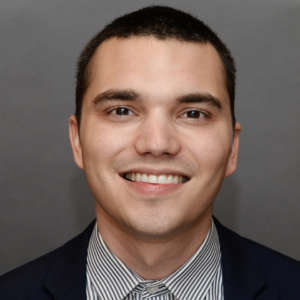Insight By American Military University
Training and education are needed most to make important policy decisions in disasters
Natural disasters are a part of life, but the increase in fires and hurricanes are putting a larger emphasis on training and education for emergency managers.
Right now Hurricane Florence is pummeling the Carolinas with rain and wind. At the same time the biggest wildfire in California state history was just recently contained.
Natural disasters are a part of life, but the increase in fires and hurricanes are putting a larger emphasis on training and education for emergency managers.
“Every time there is a major incident the doctrine changes, lessons are learned and there’s not a major disaster in this country where we have not done a lessons learned or redrawn the policies from that,” said Chris Reynolds, certified emergency manager and dean and vice president of academic outreach and program development at American Military University (AMU).
Reynolds, who has been on the ground assisting in disaster relief since the Oklahoma City Bombing in 1995, says training and experience are not only important in responding to upcoming emergencies, but also in developing policy and doctrine for future disasters.
“Experience is only gained through time and effort, boots on the ground, hands actually doing the job. Tying in the educational component, what we do at AMU, our students are practitioners and it’s interesting to note that they have years in the field… they bring that real world experience into the classroom … it’s not teaching the experience, it’s honing the education,” Reynolds said.
Reynolds added that pairing education and training together grounds decisions for emergency managers, allowing them to make solid policy that may save lives down the road.
“You are combining the strengths of the experience and the education,” Reynolds said. “When a lightbulb comes on in a student, you can see it. When they can say ‘I have experience in this field or I’ve participated in this type of response before,’ they can take that experience, tie it to the doctrine that they’ve learned in the course or the theory they learned in the course, they are going to make that better decision.”
Reynolds notes that emergency managers then take those smart decisions to their jobs in the government or their community.
No manager is an island, however, and Reynolds is working to keep emergency managers close so they can make even better policy and doctrine decisions as a group.
The Masters of Disaster student group and disaster management community at AMU brings together more than 3,000 emergency disaster experts from the government, academia and industry.
“These are individuals that represent the entire strata of emergency management, from the highest level emergency management positions in large cities and metropolitan areas to small area, the rural parts of the country,” Reynolds said.
The group, which operates on LinkedIn, encompasses firefighters, doctors, police officers, nurses and everyone else in the emergency management realm.
“The main purpose is not just to network with one another, but we also talk about doctrine, talk about things going on in the field, we have numerous discussions, we have an active jobs and career board where folks can find their job or career,” Reynolds said.
But, the most powerful thing the Masters of Disaster group did, according to Reynolds, is build a critical field database after the earthquake in Haiti. The group put the call out to volunteer. More than 130 people with emergency management backgrounds and critical skills were able to help with the disaster.
“That was done over the matter of a week. I’m very proud of our Masters of Disaster group. That facilitated that entire operation and it made us very much involved in a major incident that was happening essentially right next to Florida,” Reynolds said.
Copyright © 2025 Federal News Network. All rights reserved. This website is not intended for users located within the European Economic Area.
Featured speakers
-

Dr. Chris Reynolds
Certified Emergency Manager, Dean and Vice President of Academic Outreach & Program Development, American Military University
-

Scott Maucione
Defense Reporter, FederalNewsRadio.com
Upcoming Events
Top Stories

Dr. Chris Reynolds
Certified Emergency Manager, Dean and Vice President of Academic Outreach & Program Development, American Military University
Dr. Chris Reynolds joined the American Military University in February 2003 and has over 35 years of higher education experience in both the traditional and online classroom. As vice president of academic communications and outreach, Dr. Reynolds fosters the development of cross-disciplinary collaborations and facilitates networking to link faculty to outreach initiatives. He was the founder of the university’s premiere Emergency and Disaster Management student organization, Masters of Disaster, which is home to one of the largest and active membership within the International Association of Emergency Managers.
Dr. Reynolds also served as a division fire chief and emergency manager for over 33 years with a large metro-county fire-rescue organization. His emergency management experience includes the Oklahoma City bombing, hurricanes Andrew, Elena, Opal, and Katrina; Haitian earthquake, and the Deepwater Horizon gulf oil spill. Dr. Reynolds is a certified emergency manager (CEM) through the International Association of Emergency Managers (IAEM), a graduate of the National Fire Academy Executive Fire Officer Program (EFO), and is a Chief Fire Officer designee (CFO) through the International Association of Fire Chiefs (IAFC). Additionally, he holds the Military Emergency Management Senior Specialist (MEMS) badge. He is also a registered paramedic in the state of Florida.
Dr. Reynolds is also a retired Lieutenant Colonel, serving in the United States Air Force as an emergency preparedness officer with the North American Air Defense Command (NORAD) and United States Northern Command (NORTHCOM). He is a graduate of the Air Force Officer’s Training Program, Air Command and Staff College, and holds a doctorate in education.

Scott Maucione
Defense Reporter, FederalNewsRadio.com
Scott Maucione is a defense reporter for Federal News Radio and has worked in journalism for over a decade. He previously covered the Pentagon for Inside Defense. His work has been published in The Washington Post, Random Nerds and a handful of other publications. He received his B.A. in journalism and political science from the University of Maryland and his Master’s from American University in applied politics.



